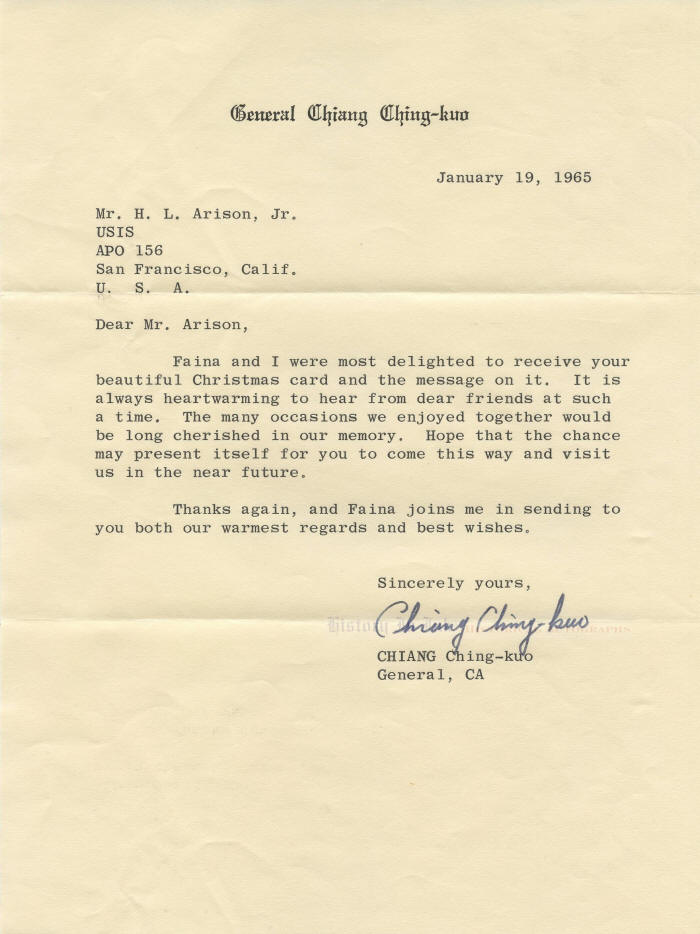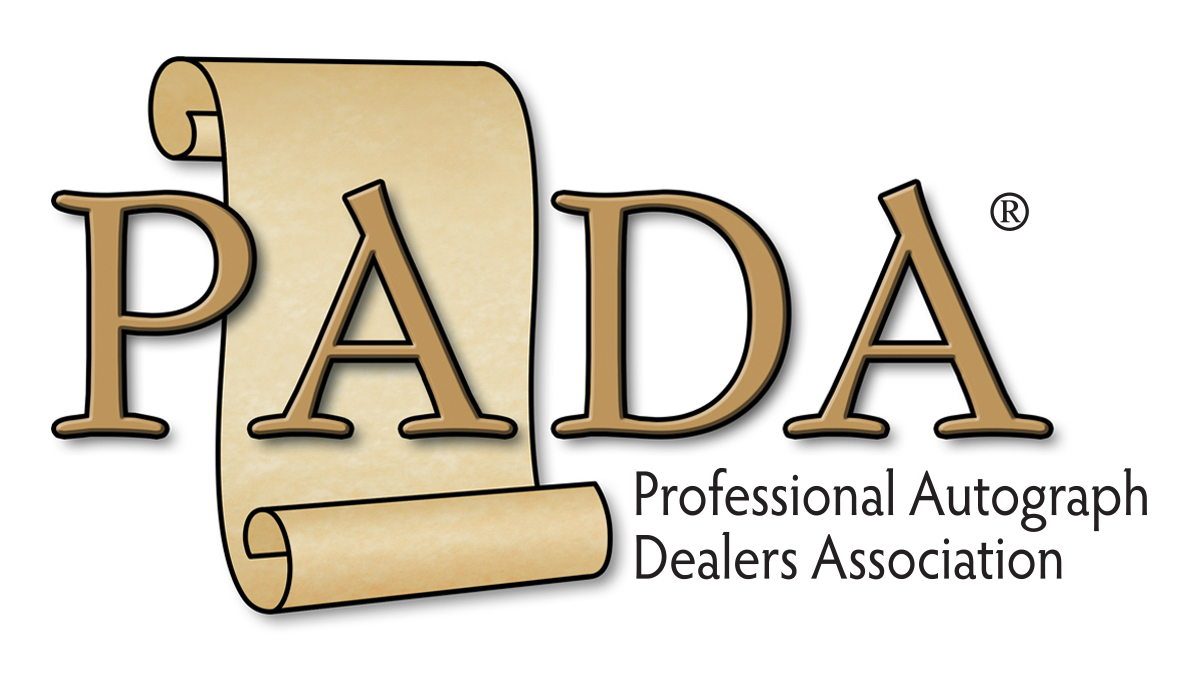2227411
Chiang Ching-kuo
Scroll down to see images of the item below the description
“The many occasions we enjoyed together would be long cherished in our memory.”
Chiang Ching-kuo, 1910–1988. Son of Chiang Kai-shek; 3rd President of the Republic of China, 1978–1988; 9th Premier of the Republic of China, 1972–1978; Minister of National Defense, 1965–1969. Typed letter signed, Chiang Ching-kuo, one page, 7⅛” x 9⅝”, on engraved personal stationery, no place [Taipei, Taiwan], January 19, 1965. With original envelope.
A general in the Republic of China Army, Chiang was the oldest and the only biological son of Generalissimo Chiang Kai-shek, who ruled China until Mao Zedong’s Communist forces drove the nationalist government to the island of Taiwan. Chiang Ching-kuo was serving as the Premier of the Republic of China at the time of his father’s death in 1975 and later succeeded him as President in 1978. He served as President until his death in 1988. During his time in office, Taiwan gradually shifted from Chiang Kai-shek’s authoritarian rule toward greater tolerance of political dissent and fewer governmental controls on speech and the media.
Five days after he became the Minister of National Defense in 1965, Chiang writes this letter to Lin Arison, Jr., an America Army bandmaster who served as Chiang Kai-shek’s Military Music Advisor, to thank him for his Christmas greetings. He writes, in full: “Faina and I were most delighted to receive your beautiful Christmas card and the message on it. It is always heartwarming to hear from dear friends at such a time. The many occasions we enjoyed together would be long cherished in our memory. Hope that the chance may present itself for you to come this way and visit us in the near future. / Thanks again, and Faina joins me in sending you both our warmest regards and best wishes.”
Chiang refers to his wife, Faina, a native of Belarus whom he met and married in 1935 during the 12 years that he lived in the former Soviet Union. He moved to Moscow in 1925, when Chiang Kai-shek’s Nationalist Party and the Chinese Communist Party were in alliance, and studied at the Communist University of the Toilers of the East, a revolutionary training school for Communist leaders. When Chiang Kai-shek split with the Chinese Communists in 1927, Soviet Premier Josef Stalin sent Chiang Ching-kuo to work in a steel plant in the Ural Mountains. It was there that Ching-kuo met and married Faina Ipatyevna Vakhreva (1916–2004). She later took the Chinese name Chiang Fang-liang and thence was known as Faina Chiang Fang-liang.
As this letter shows, Chiang Ching-kuo spoke and wrote fluent English, a skill that his father thought was important. He was also fluent in Russian from his time in the Soviet Union.
This letter has never been offered on the autograph market before. Chiang has signed boldly in black felt-tip pen. The letter has two horizontal mailing folds, one of which affects the signature, and has scattered handling marks, particularly at the upper left. The original mailing envelope bears two Republic of China $10 dollar stamps. One is the 1964 commemorative Eleanor Roosevelt human rights stamp, Scott # 1435, honoring the 16th anniversary of the Universal Declaration of Human Rights on December 10, 1964, and the other is the 1958 Free China President’s Mansion stamp, Scott # 1196a. The envelope has been torn open on the right end and is soiled at the ends. The envelope is in fine condition, and the letter is fine to very fine.
Unframed.








